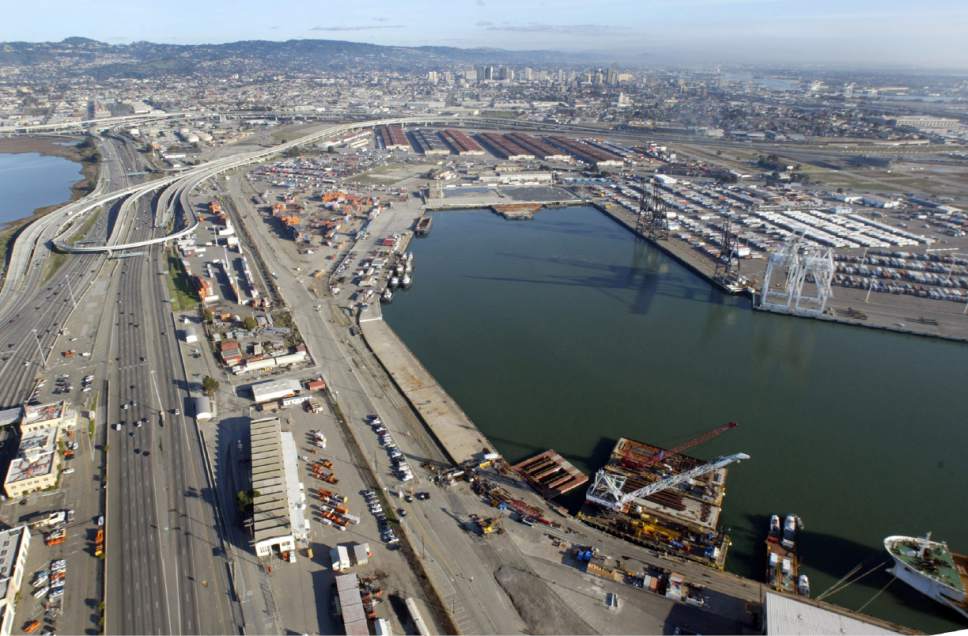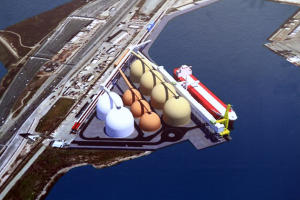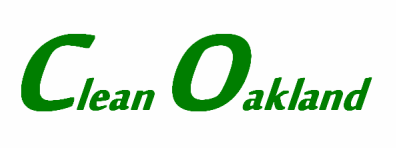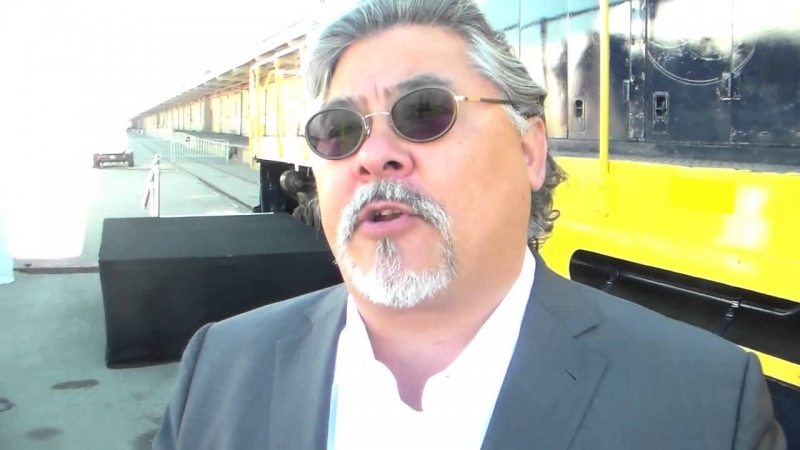|
The Oakland developer’s power and influence is waning, much like the old fossil fuel he wants to ship. By Robert Gammon Throughout the late 1990s and the entire 2000s, Oakland was Phil Tagami’s town. In the evening, the influential developer wined and dined with the city’s most powerful politicians—then-Mayor Jerry Brown, then-state Senate President Don Perata, and then-City Council President Ignacio De La Fuente. And during business hours, he got what he wanted from City Hall. No questions asked.
But with Brown in the governor’s mansion and Perata and De La Fuente relegated to the scrap heap of Oakland politics, Tagami no longer possesses the juice he once had. At no time was that more obvious than on Monday night, when the Oakland City Council unanimously rejected a proposal to ship coal through a new marine terminal that Tagami is building at the former Army Base. Tagami couldn’t get a single councilmember to vote for the plan. And he knew it before it happened. Indeed, in a clear sign of his waning influence, the developer didn’t even show up to the council chamber rotunda, a place where he used to instill fear just by strolling through the ornate double doors. Instead, Tagami spent the evening on Twitter, haranguing councilmembers for their decision-making, talking about suing Oakland taxpayers, and subtweeting at reporters. Terminal Logistics Solutions, the development team behind the coal plan that is working closely with Tagami, dispatched lobbyists Gregory McConnell and Ron Muhammed and bussed in “demonstrators” to shout at councilmembers, make bogus claims about coal-producing jobs, and demand that the council reject Mayor Libby Schaaf and Councilmember Dan Kalb's proposed ban on coal. But the group’s theatrics had no impact on the outcome either—other than to make for a rather tiresome, and long, night. Coal, in other words, is a fitting metaphor for Phil Tagami: The once powerful fossil fuel used to shape politicians and move governments, but it’s now dying a long slow death in a new era of renewable energy and climate change. With his political influence nearly gone and the coal plan on the rocks, Tagami’s only move now is to take some of the profits he reaped from Oakland City Hall deals over the years and spend it on lawyers. He likely will threaten to hold up the redevelopment of the Army Base and decry the potential loss of millions in federal and state grants until he gets what he wants. Indeed, Tagami’s attorney, Dave Smith, made such threats in a rambling, 17-page letter to the council on Monday. Smith even went so far as to claim that councilmembers could be held personally liable in an upcoming lawsuit if they voted against coal. But Oakland politicians have no reason to fear Tagami’s threats or his money anymore. Sure, he’s still a close friend and a business partner of Gov. Brown (in fact, Brown also has a financial link to the coal deal). But Brown can’t intervene on Tagami’s behalf now—not without seriously tarnishing his image as a world climate leader. Moreover, the city’s development deal with Tagami clearly allows the council to take necessary steps to protect the “health and safety” of West Oakland residents who would be harmed by coal-by-rail shipments. As such, banning coal was a no-brainer. And if Tagami can’t make the Army Base redevelopment pencil out without money gleaned from shipping a dirty fossil fuel that pollutes the air, warms the planet, and harms people’s health, then the city should void its deal with this aging dinosaur. Our Backyard is an occasional opinion column by senior editor Robert Gammon. http://www.oaklandmagazine.com/Our-Backyard-Phil-Tagami-Is-Coal/
0 Comments
By BRIAN MAFFLY The Salt Lake Tribune First Published Jun 24 2016 03:42PM Last Updated Jun 24 2016 05:40 pm Citing potential impacts of coal dust on public health and safety, Oakland city staffers are recommending that elected leaders of this Bay Area city ban coal storage, effectively derailing Utah's hopes of moving its coal through an export terminal proposed for a deep-water port under development on city-owned property. The Oakland City Council is holding a special meeting Monday evening to discuss a 200-page report prepared by an outside consultant and consider a proposed ordinance prohibiting the handling and storage of coal and coke in Oakland, the busy port city between Berkeley and Hayward. The proposed ordinance targets the Oakland Bulk and Oversize Terminal(OBOT), a project that coal-producing Utah counties seek to invest in as a way to secure throughput capacity for Utah commodities — which they say could also include potash, salt and alfalfa. Existing state and federal laws and regulations are not sufficient to protect Oakland residents from fugitive coal dust that could escape into the environment if coal is transloaded at a deep-water marine terminal envisioned for the former Oakland Army Base, according to a memo assistant city administrator Claudia Cappio submitted to the City Council this week. "The Ordinance would protect and improve air quality and reduce [greenhouse gas emissions]; reduce the transport of hazardous materials through and within the City of Oakland; improve water and soil quality, and minimize the strain on local services that would need to respond to potential emergencies by prohibiting these facilities," she wrote. OBAT, a 30-acre, $250 million piece of the former Army base redevelopment project, has been a lightning rod of controversy for that past year, ever since Utah's interest in the project surfaced. The developers had previously promised city officials coal would not be moved through the terminal, but that was before the Utah Permanent Community Impact Fund Board, or CIB, voted to loan four counties $53 million to invest in the project in exchange for half OBAT's 10-million-ton loading capacity. To investigate health and safety implications of coal handling, Oakland officials hired Environmental Science Associates (ESA), whose report was released Friday. The consultant concluded that emissions associated with coal-handling operations at OBOT could lead to additional violations of ambient air quality standards for particulate matter and harm an already disadvantaged community. West Oakland, the neighborhood next to the port, is already saddled with poor health indicators, such as high rates of asthma and other pollution-induced illnesses. One study concluded that an African-American resident here can expect to live 10 to 15 years fewer than a white resident of the Oakland Hills. ESA's findings were similar, though not as strident as those of an assessment issued last week issued by an independent panel of public-health experts. That group argued coal would threaten the public health in the East Bay and called on Oakland to block shipments. "We could not find evidence that the proposed mitigation measures would effectively protect Oakland's residents; to the contrary, our investigation suggests the possibility that these very measures may introduce new hazards into the city," said co-author Heather Kuiper, an Oakland-based public-health consultant. But Carbon County Commissioner Jae Potter, whose county is leading the four-county investment in the terminal, dismissed this panel's finding, claiming they could never stand up to scientific scrutiny and are based on faulty assumptions. "Why is it that we [in Carbon County, where the coal originates] do not have an air quality issue or dust issue? The loaded coal is transported through downtown Wellington, Price, and Helper. Why is it that other communities the unit trains go through do not have an issue?" Potter believes Oakland's opposition to Utah coal is driven by a larger agenda that has nothing to do with local public health and everything to do with keeping coal in the ground. "Look at the report, most of the people [who wrote it] are from Berkeley or a special interest group," he said. The report, released by a group called Human Impact, is riddled with inaccuracies and "emotional hyperbole," he said. The marine terminal's proponent, Terminal Logistics Solutions, has claimed OBOT would support hundreds of local jobs and that dust emissions would be negligible because the coal would be shipped from Utah in covered rail cars. The coal be unloaded and conveyed onto ships in fully enclosed structures. Such facilities have not been widely used for coal handling and little is known about their effectiveness for reducing emission, ESA reported. Potter said such domes are in use in many places. By BRIAN MAFFLY The Salt Lake Tribune  FILE - A deep water port is under development at the former Oakland Army Base, pictured here in 2008 at the foot of the San Francisco Bay Bridge. Utah has loaned four coal-producing counties $53 million to buy into the project to guarantee export throughput for coal and other commodities produced in central Utah. But coal shipments might not be welcome in Oakland. (AP Photo/Bay Area News Group, Laura A. Oda) An Oakland city administrator is advising the City Council to block a controversial plan to ship coal from the Port of Oakland after a long-awaited study revealed that exposure to coal dust could damage vital organs, cause cancer and stunt childhood growth and development.
Oakland Assistant City Administrator Claudia Cappio is recommending that the council ban storage and handling of coal in bulk facilities, including the shipping terminal that developer Phil Tagami plans to build near the east end of the Bay Bridge. Cappio’s advice appeared in a staff report made public Friday, three days before the council meets for a public hearing and vote on Tagami’s plan to ship millions of tons of coal each year through the city. It included a damning report from the city’s environmental consultant, ESA, which said that railcars being unloaded at the terminal could send coal dust wafting over two neighboring schools, a child care center, commuters at the Bay Bridge toll plaza and parks near Interstate 880. “Scientific research points to potential significant public health hazards related to coal/(petroleum) coke dust,” Cappio wrote in the city’s staff report. She wrote that coal dust can harm people’s hearts and lungs, hinder child development and lead to cancer. It would also pollute the air in West Oakland and potentially harm workers in the shipping facilities or nearby rail yards, Cappio wrote. Tagami’s $250 million Oakland Bulk and Oversized Terminal project is a cornerstone of the huge 130-acre development that his company, California Capital & Investment Group, has undertaken at the former Oakland Army Base. The entire development will add rail lines, shipping centers and warehouses to a piece of land that has long sat barren. Coal didn’t appear to be part of the plan until 2014, when Tagami’s shipping operator, Terminal Logistics Solutions, entered talks with four coal-mining counties in Utah whose leaders wanted to invest in the project — on the condition that Utah coal be shipped through Oakland. In March, the Utah Legislature voted to spend $53 million in taxpayer funds on the Oakland terminal. Officials in Oakland have struggled with whether to outright prohibit the transport and storage of coal in Oakland, a move that would require the city to alter its 3-year-old development agreement with Tagami and potentially derail the project. The coal-shipping plan has for months pitted environmentalists and health workers against labor groups that accuse the city of trying to chase out a project that could generate thousands of jobs. Jessica Yarnall Loarie, a staff attorney for the Sierra Club’s environmental law program, said she is optimistic that the council will follow Cappio’s recommendation. But David Smith, a lawyer representing Tagami, said that such a ban would be “a clear violation” of the development agreement. “Should they act on it, we would have no choice but to pursue all available legal remedies,” Smith said. Rachel Swan is a San Francisco Chronicle staff writer. Email:[email protected] Twitter: @rachelswan http://www.sfgate.com/bayarea/article/Coal-would-endanger-residents-Oakland-official-8324278.php By Sen. Loni HancockEast Bay Times guest commentary POSTED: 06/25/2016 09:00:00 AM PDT Environmental injustice doesn't happen overnight. It comes from decades of local and state decisions that slowly allow a community to become a dumping ground for industrial pollutants.
Many of our choices have turned West Oakland into a place where three freeways meet, where cancer-causing agents have been deposited in the soil and groundwater and where the diesel traffic from the Port of Oakland is an unremitting irritant. Now the community's residents, mostly low-income people of color, face the challenge of yet another environmental hazard in their backyard: a terminal that would import up to 10 million tons of coal a year through a proposed shipping center on city-owned land adjacent to the Port of Oakland. I hope and expect that the Oakland City Council, which is keenly aware of this burden, will vote Monday to eliminate coal from the project. If the city's elected officials needed a stark reminder of the harmful effects of moving coal across California and into the East Bay, they recently received a study by an independent panel of California public health experts. Led by Dr. Bart Ostro, former chief of Air Pollution Epidemiology for the state EPA, the panel found that coal dust and diesel exhaust from the project would likely combine to push concentrations of fine particulate matter in West Oakland above state and federal safety limits. These pollutants, among the most dangerous to human health, are linked to lung cancer, asthma and heart disease. Advertisement"This is a community already disproportionately burdened by multiple sources of air pollution with high rates of emergency room visits and hospitalizations for asthma and heart disease as well as increased cancer risk from existing pollution," Ostro said. The revitalization of the former Oakland Army Base is a project I very much support. Done well, it will enhance world trade and provide many local jobs. But support of the project has been undermined by revelations that the developer hid his intent to transport coal from the dying mines of Utah through California to China and other Asian countries. If this happens, it will turn our state from being a worldwide leader of the growing green economy into the largest West Coast exporter of coal -- a major public health danger and greenhouse gas polluter. Nowhere in preliminary meetings and documents was "coal" mentioned. Despite the assurances of the coal industry, no one has yet designed a widely used way to haul coal by train without sending millions of tons of coal dust -- carbon, mercury, arsenic, fine particles that can trigger asthma and heart disease -- into the air. And what about the workers whose jobs it will be to move all that coal from train to ship? This is why the Longshoreman's union and the Sierra Club, not always allies, are standing firmly together against the coal terminal. Shipping coal imported across borders belongs to California's past. More than any other state, we are aggressively moving beyond fossil fuels. To now embrace a project that moves us backward on the issue of climate change would be a serious mistake. I believe the Oakland City Council will stand up for its people and eliminate the possibility of a coal terminal. We were promised an economically and environmentally healthy revitalization of the Oakland waterfront. It was, and remains an effort we can be proud of. But coal was never part of the bargain. Our deal was a clean deal. Loni Hancock, author of two pending bills that would block the proposed coal terminal, represents nearly 1 million residents of Senate District 9, in the East Bay. http://www.eastbaytimes.com/opinion/ci_30051271/harmful-coal-may-become-californias-next-export-east By Erin Baldassari, [email protected] POSTED: 06/25/2016 04:05:14 PM PDT  File photo: A rendering of the proposed domes on the site of Oakland Global, a new shipping terminal at the former Oakland Army Base in Oakland . (Courtesy of Terminal Logistics Solutions) File photo: A rendering of the proposed domes on the site of Oakland Global, a new shipping terminal at the former Oakland Army Base in Oakland . (Courtesy of Terminal Logistics Solutions) OAKLAND -- The Oakland City Council has both the legal authority and sufficient scientific evidence to prohibit coal exports at a planned bulk terminal in West Oakland, a city-funded report and staff recommendations released Friday found. The report, along with two pieces of legislation, confirms what environmental activists in Oakland had been decrying for more than a year: that shipping coal through Oakland would pose a serious health risk to both West Oakland residents and workers at the planned terminal. The findings come just three days before the council is expected to vote on a resolution specifically prohibiting the storage and handling of coal at the Oakland Bulk and Oversized Terminal, a $250 million global logistics center taking shape on the Outer Harbor. The council is also expected to consider a law banning the "storing, loading, unloading, stockpiling, transloading or otherwise handling and/or managing" of coal or petroleum coke at any future bulk facility in Oakland, except for personal, scientific, or recreational use, and in other limited situations. The law does not regulate whether shipments of coal can move through the city on railroads or through marine terminals. Lora Jo Foo, an environmental activist with the No Coal in Oakland coalition, lauded both the staff's recommendations to the council and the city-funded report by Environmental Science Associates, an environmental consulting firm. Councilmember Dan Kalb funded a separate study by energy and public health expert Zoe Chafe, which was also released Friday and came to similar conclusions as the ESA report. "We're really relieved that the city staff, after looking at this evidence for nine months, did the right thing," Foo said. "The city now has more than substantial evidence to pass a complete ban on coal." Environmentalists have been fighting for more than a year with the city to block coal from moving through the terminal after it was revealed that the terminal developer, Phil Tagami, and representatives of Terminal Logistics Solutions, which has an exclusive right to operate the terminal, planned to export coal. The council in 2013 signed an agreement with Tagami that did not restrict coal or other commodities from being exported at the former base, and at the time, there was no mention of coal being shipped there. But since then, Tagami has said it was a possibility. And, in March, the state of Utah passed a bill investing $53 million of taxpayer money for a coal-shipping facility in Oakland. City staff relied on a provision in the agreement that allows the city to apply new laws to the agreement if failing to do so would "place existing or future occupants or users of the Project, (or) adjacent neighbors ... in a condition substantially dangerous to their health." Kalb, who, along with Mayor Libby Schaaf, is sponsoring the proposed legislation, said there is ample evidence showing that storing and handling coal at facilities in the city would impact the health of residents. He commissioned the Chafe report, he said, because he "thought it was very important that if we're going to take action, we do so based on all of the scientific information available to us." "The evidence shows there's good, strong reasons to not allow coal," Kalb said. But David Smith, who represents the bulk terminal project, said his client vows to fight any vote that would limit the terminal's ability to move coal through the site. "We absolutely view any action consistent with the staff recommendations as a breach of the development agreement for the project and will certainly pursue all legal remedies from that," Smith said. Foo said threats of litigation are nothing new from the project's developer, but she was hopeful the council would stand firm and support the staff's recommendations. "Now the question is," Foo said, "does the council have the courage to ban coal?" The City Council will hold a special meeting at 5 p.m. on Monday at Oakland City Hall. The No Coal in Oakland coalition will be hosting a rally in support of the coal ban at 1 p.m. on Saturday at Frank Ogawa Plaza in Oakland. Contact staff reporter Erin Baldassari at 510-208-6428. Follow her on Twitter attwitter.com/e_baldi. http://www.eastbaytimes.com/breaking-news/ci_30055101/coal-foes-win-major-victory-fight-block-oakland |
Gene HazzardDon't Be Envious of Evil Men Archives
June 2024
Categories
All
|
- Home
- Sanjiv Handa
- Gene's Blog
- Rotunda RFP
- Gene Hazzard -Keeping eyes open
- Chronology of Tagami's scheme of Private-Public Partnership with City Projects
- Another Tagami scheme - Rotunda Building deal
- Oakland Army Base
- Billboards in Oakland
- Port of Oakland
- Oakland Raiders?
-
Who is running Oakland?
- Jerry Brown
- Don Perata
- Judge Robert B. Freedman
- Jacques Barzaghi
- Gawfco Enterprises
- Deception
- Doug Bloch
-
Phil Tagami
>
- SF Business Times November 20, 2005
- Rotunda wrestling
- A conversation with Oakland developer Phil Tagami
- Audit of $91 million Fox Theater project
- Tagami Conflict
- CCIG Response to Oakland Works
- Oakland developer Phil Tagami named to state medical board
- ‘Shotgun Phil’ hits another bullseye — with governor’s help
- CleanOakland Store
- CenterPoint Properties


 RSS Feed
RSS Feed
